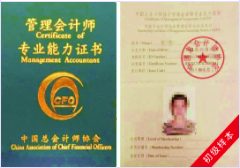四级真题练习――快速阅读
How Do You See Diversity
As a manager, Tiffany is responsible for interviewing applicants for some of the positions with her company. During one interview, she noticed that the candidate never made direct eye contact. She was puzzled and somewhat disappointed because she liked the individual otherwise.
He had a perfect resume and gave good responses to her questions, but the fact that he never looked her in the eye said “untrustworthy,” so she decided to offer the job to her second choice. “It wasn’t until I attended a diversity workshop that I realized the person we passed over was the perfect person,” Tiffany confesses. What she hadn’t known at the time of the interview was Opt the candidate’s “different” behavior was simply a cultural misunderstanding. He was an Asian-American raised in a household where respect for those in authority was shown by averting (避开) your eyes.
“I was just thrown off by the lack of eye contact; not realizing it was cultural,” Tiffany says. “I missed out, but will not miss that opportunity again.”
Many of us have had similar encounters with behaviors we perceive as different. As the world becomes smaller and our workplaces more diverse, it is becoming essential to expand our understanding of others and to reexamine some of our false assumptions.
Hire Advantage
At a time when hiring qualified people is becoming more difficult, employers who can eliminate invalid biases (偏见) from the process have a distinct advantage. My company, Mindsets LLC, helps organizations and individuals see their own blind spots. A real estate recruiter we worked with illustrates the positive difference such training can make.
“During my Mindsets coaching session, I was taught how to recruit a diversified workforce. I recruited people from different cultures and skill sets. The agents were able to utilize their full potential and experiences to build up the company. When the real estate teethes began to change, it was because we had a diverse agent pool that we were able to say in the real estate market much longer than others in the same profession.”‘
Blinded by Gender
Dale is an account executive who attended one of my workshops on supervising a diverse workforce. “Through one of the sessions, I discovered my personal bias,” he recalls. “I learned I had not been looking at a person as a whole person, and being open to differences.” In his case, the blindness was not about culture but rather gender.
“I had a management position open in toy department; and the two finalists were a man and a woman. lied I not attended this workshop, I would have automatically assumed the man was the best candidate because the position required quite a bit of extensive travel. My reasoning would have been that even though both candidates were great and could have been successful in the position, I assumed the woman would have wanted to he home with her children and not travel.” Dale’s assumptions are another example of the well-Intentioned but incorrect thinking that limits an organization’s ability to tap into the full potential of a diverse workforce.
“I learned from the class that instead of imposing my gender biases into the situation. I needed to present the full range of duties, responsibilities and expectations to all candidates and allots them to make an informed decision.” Dale credits the workshop, “because it helped me make decisions based on fairness.”
Year of the Know-It-All
Doug is another supervisor who attended one of my workshops. Fie recalls a major lesson learned from his own employee.
“One of my most embarrassing moments was when I had a Chinese-American employee put in a request to take time off to celebrate Chinese New Year. In my ignorance, I assumed he had his dates wrong’, as the first of January had just passed. When I advised him of this, I gave him a tong talking-to about turning in requests early with the proper dates.
“He patiently waited, then when I was done, he said he would like Chinese New Year off, not the Western New Year. He explained politely that in his culture the new year did not begin January first, and that Chinese New Year, which is tied to the lunar cycle, is one of the most celebrated holidays on the Chinese calendar. Needless to say, I felt very embarrassed in assuming he had his dates mixed up. But I learned a great deal about assumptions, and that the timing of holidays varies considerably from culture to culture.
“Attending the diversity workshop helped me realize how much I could learn by simply asking question and creating dialogues with toy employees, rather than making assumptions and trying to
be a know-it-all,” Doug admits. “The biggest thing I took away from the workshop is learning how to be more ‘inclusive’ to differences.”
A Better Bottom Line
An open mind about diversity not only improves organizations internally, it is profitable as well. These comments from a customer service representative show how an inclusive attitude can improve sales. “Most of my customers speak English as a second language. One of the best things my company has done is to contract with a language service that offers translations over the phone. It wasn’t until my boss received Mindsets’ training that she was able to understand how important inclusiveness was to customer service. As a result, Oct customer base has increased.”
Once we start to see people as individuals, and discard the stereotypes, we can move positively toward inclusive for everyone. Diversity is about coming together and taking advantage of our differences and similarities. It is about building better communities and organizations that enhance us as individuals and reinforce our shared humanity.
When we begin to question our assumptions and challenge what we think we have learned from Oct past, from the media, peers, family, friends, etc., toe begin to realize that some of our conclusions are flawed (有缺陷的) or contrary to our fundamental values. We need to van) ourselves to think differently, shift our mindsets and realize that diversity opens doors for all of us, creating opportunities in organizations and communities that benefit everyone.
注意:此部分试题请在答题卡1上作答。
1. What bothered Tiffany during an interview with her candidate’?
A) He just wouldn’t look her in the eye.
B) He was slow in answering her questions.
C) His resume didn’t provide the necessary information.
D) His answers to some of her questions were irrelevant.
2. Tiffany’s misjudgment about the candidate stemmed from
A) racial stereotypes
B) invalid personal bias
C) cultural ignorance
D) emphasis on physical appearance
3. What is becoming essential in the course of economic globalization according to the author?
A) Hiring qualified technical and management personnel.
B) Increasing understanding of people of other cultures.
C) Constantly updating knowledge and equipment.
D) Expanding domestic and international markets.
4. What kind of organization is Mindsets LLC?
A) A real estate agency.
B) A personnel training company.
C) A cultural exchange organization.
D) A hi-tech company.
5. After one of the workshops, account executive Dale realized that.
A) he had hired the wrong person
B) he could have done more for his company
C) he had not managed his workforce well
D) he must get rid of his gender bias
6. What did Dale think of Mindsets LLC’s workshop?
A) It was well-intentioned but poorly conducted.
B) It tapped into the executives’ full potential.
课程推荐
- 中级会计职称普通班
- 中级会计职称特色班
- 中级会计职称精品班
- 中级会计职称实验班
| 课程班次 | 课程介绍 | 价格 | 购买 |
|---|---|---|---|
| 普通班 | 班次特色 |
240元/一门 450元/两门 680元/三门 |
购买 |
| 课程班次 | 课程介绍 | 价格 | 购买 |
|---|---|---|---|
| 精品班 | 班次特色 |
680元/一门 1200元/两门 1800元/三门 |
购买 |
- 中级会计职称机考模拟系统综合版
- 中级会计职称机考模拟系统实验版
| 模拟题库 | 题库介绍 | 价格 | 购买 |
|---|---|---|---|
综合版 |
题库特色 |
120元/一门 200元/两门 240元/三门 |
购买 |
| 模拟题库 | 题库介绍 | 价格 | 购买 |
|---|---|---|---|
| 实验版 | 题库特色 |
240元/一门 480元/两门 720元/三门 |
购买 |
最新新闻
网站地图
专业知识水平考试:
考试内容以管理会计师(中级)教材:
《风险管理》、
《绩效管理》、
《决策分析》、
《责任会计》为主,此外还包括:
管理会计职业道德、
《中国总会计师(CFO)能力框架》和
《中国管理会计职业能力框架》
能力水平考试:
包括简答题、考试案例指导及问答和管理会计案例撰写。
- 管理会计师PCMA 免费试听
- 中级管理会计师 免费试听
- 税务管理师 免费试听
- 智能财务师 免费试听
- 国际注册会计师 免费试听
- 国际财务管理师 免费试听
- 初级会计职称考试 免费试听
- 中级会计职称考试 免费试听
- 注册会计师考试 免费试听
- 全国外贸会计考试 免费试听
- 会计实务操作 免费试听
- 管理会计师 免费试听
-
初级会计职称招生方案
·特色班
·精品班
·实验班

初级会计职称网上辅导 -
中级会计职称招生方案
·普通班
·特色班
·精品班

中级会计职称网上辅导
专业知识水平考试:
考试内容以管理会计师(中级)教材:
《风险管理》、
《绩效管理》、
《决策分析》、
《责任会计》为主,此外还包括:
管理会计职业道德、
《中国总会计师(CFO)能力框架》和
《中国管理会计职业能力框架》
能力水平考试:
包括简答题、考试案例指导及问答和管理会计案例撰写。

 您现在的位置:
您现在的位置:




